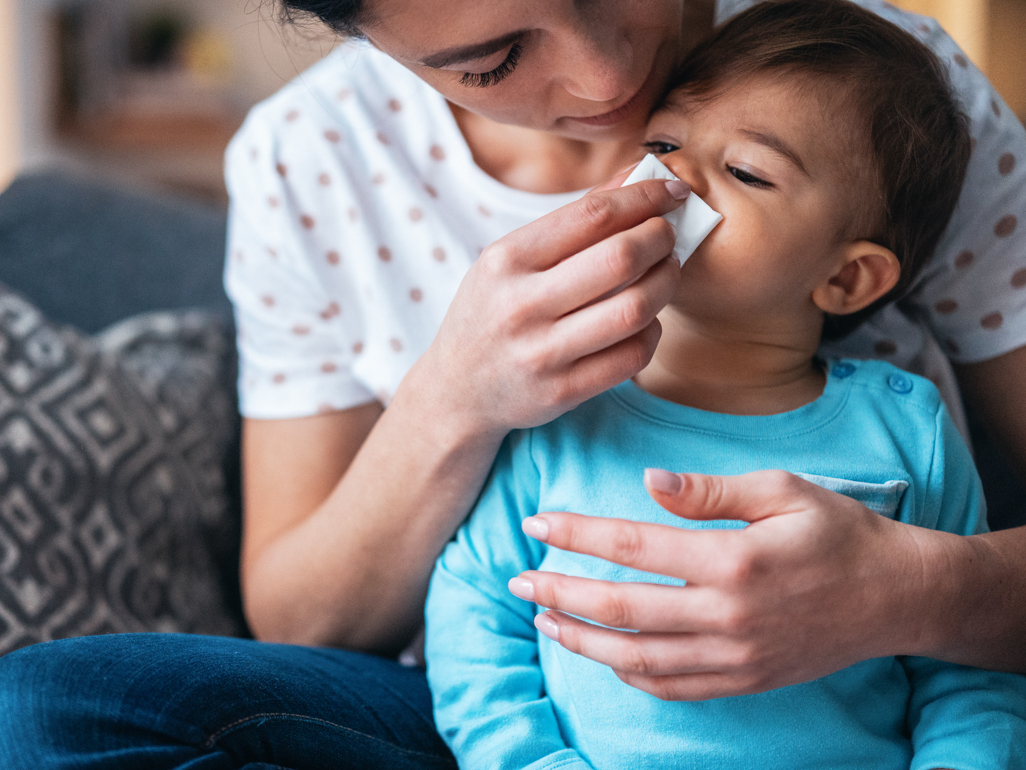Antibiotics do not provide benefits in preventing repeating in the future in a baby treated in hospitals with breathing Syncytial Virus (RSV), according to a new study led by Washington University Medical School in St. Louis. And there is some evidence that antibiotics can make wheezing Azithromycin antibiotics have anti-inflammatory properties that can be useful in some chronic lung diseases, such as cystic fibrosis. With this thought, the researchers investigated their potential to prevent repetitive slacking in the future among babies who were hospitalized with the Syncytial Respiratory (RSV) virus. With such babies on an increased risk of experiencing asthma in childhood, scientists hope to find therapy to reduce this risk.
However, among the babies treated at RSV, there was no difference in the number of wheezing in babies treated with azithromycin versus those who received placebo, according to a new study led by researchers at the Washington University School of Mediced in St. Louis and Vanderbilt University Furthermore, while the difference in the number of wheezers does not achieve statistical significance, research instructions that treatment with antibiotics in any form can increase wheeze in the baby being hospitalized with a virus The results of this study presented February 27 at the American Academy of Allergy, Asthma & Immunology annual meeting in Phoenix and published simultaneously at the New England Journal of Medicine – proof.
In infants and small children, RSVs can cause bronchiolitis, a small airways infection in the lungs. Almost all RSV contract children at several points in early childhood, and a small percentage of developing severe bronchiolitis to be hospitalized. Babies are hospitalized with RSV bronchiolitis at an increased risk of asthma The current experiment was confirmed, as anticipated, that Azithromycin lowered the marker of the inflammation of the airway called IL-8. Babies treated with azithromycin have lower IL-8 levels in their nose than babies who receive placebo, confirm the anti-inflammatory effect of azithromycin. Even so, patients treated with azithromycin do not reduce the risk of exposed to repeating compared to the placebo group. While the difference did not achieve statistical significance, the data actually leaned on an increase in the risk of wheezing, with 47% of patients who had received azitromycin which experienced repeated versus 36% of the placebo group. Repeated wheezing is defined as three episodes of wheezing for two to four years of follow-up.
With parental permission, the researchers randomly assigned 200 babies to be treated at St. Children’s Hospital. Louis for RSV bronchiolitis to receive oral azithromycin or placebo for two weeks. The babies should be healthy and ranging from 1 month to 18 months. The researchers received approval from Food and Drug Administration (FDA) to give azitromycin baby as part of this clinical trial. Azithromycin is an ordinary antibiotic prescribed used in children aged 2 and older Patients were registered for three consecutive RSV seasons, from 2016 to 2019, and were followed for two to four years after hospitalization. The researchers also track whether the baby receives other antibiotics before or during their hospital stay. Small pediatricians can choose to prescribe other antibiotics if, for example, children also develop ear infections or allegedly develop bacterial pneumonia or other bacterial infections. Amoxicillin is the most common additional antibiotic prescribed.
While this study was not designed to unravel the impact of various combinations of antibiotics, Beigelman said they found evidence that only azithromycin – among patients who did not accept other antibiotics – could increase the risk of wheezing. The researchers also found a suggestion for an increase in risk of recurring between patients who had received antibiotics (such as amoxicillin from pediatricians) “There may be an increased risk of repeating the use of antibiotics,” Beigelman said. “We want to be careful in our interpretation of potentially negative antibiotic effects, because this research is not designed to test different antibiotic effects. However, this is an important message to be communicated to pediatricians, because antibiotics are often given to patients with RSV bronchiolitis Despite the fact that this practice is not supported by clinical guidelines. At the very least, azithromycin and antibiotics generally have no benefit in preventing repeating, and there is their possibility of dangerous Beigelman said the researchers also collected samples of waterway channel microbioms from these patients and planned to investigate whether the bacteria colonized the airway could interact with antibiotics and impact on wheezing. They also plan to analyze the stool samples collected from the same baby to see whether gut microbiomas may have a role in wheezing and the next risk of being affected by asthma in childhood.


